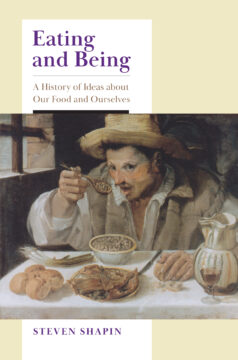Benjamin Aldes Wurgaft in the Los Angeles Review of Books:
 Throughout his career as a historian of science, Shapin has shown that scientific authority rests not simply on established fact but also on what people consider truth—and truth has a fundamentally social character. He has done this in books such as Leviathan and the Air-Pump: Hobbes, Boyle, and the Experimental Life (co-written with Simon Schaffer, 1985), A Social History of Truth: Civility and Science in Seventeenth-Century England (1994), The Scientific Life: A Moral History of a Late Modern Vocation (2008), and the admirably subtitled collection Never Pure: Historical Studies of Science as If It Was Produced by People with Bodies, Situated in Time, Space, Culture, and Society, and Struggling for Credibility and Authority (2010). These works have made him a leading scholar of the Scientific Revolution, which supplies many of his case studies (see Shapin’s The Scientific Revolution, 1996). How do scientists (or “natural philosophers”) earn each other’s trust and the public’s trust? How do they establish what counts as scientific truth, and why do we believe them? These questions go far beyond the institutional settings of the sciences. They extend, Shapin argues in Eating and Being, into our kitchens and dining rooms.
Throughout his career as a historian of science, Shapin has shown that scientific authority rests not simply on established fact but also on what people consider truth—and truth has a fundamentally social character. He has done this in books such as Leviathan and the Air-Pump: Hobbes, Boyle, and the Experimental Life (co-written with Simon Schaffer, 1985), A Social History of Truth: Civility and Science in Seventeenth-Century England (1994), The Scientific Life: A Moral History of a Late Modern Vocation (2008), and the admirably subtitled collection Never Pure: Historical Studies of Science as If It Was Produced by People with Bodies, Situated in Time, Space, Culture, and Society, and Struggling for Credibility and Authority (2010). These works have made him a leading scholar of the Scientific Revolution, which supplies many of his case studies (see Shapin’s The Scientific Revolution, 1996). How do scientists (or “natural philosophers”) earn each other’s trust and the public’s trust? How do they establish what counts as scientific truth, and why do we believe them? These questions go far beyond the institutional settings of the sciences. They extend, Shapin argues in Eating and Being, into our kitchens and dining rooms.
More here.
Enjoying the content on 3QD? Help keep us going by donating now.
